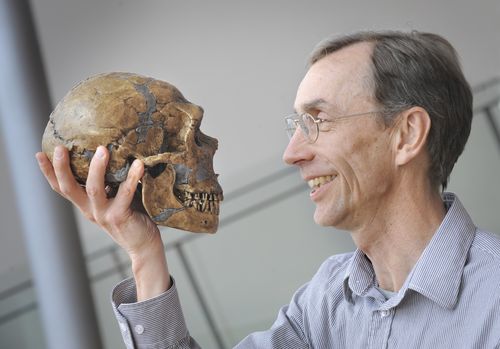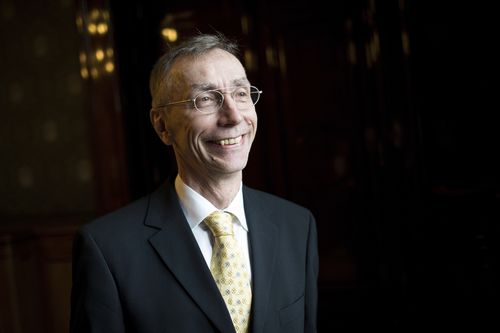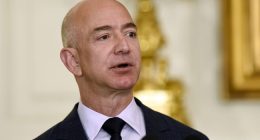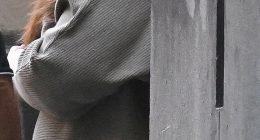This year’s Nobel Prize in physics has been awarded to Alain Aspect, John F Clauser and Anton Zeilinger for their work on quantum information science.
Hans Ellegren, Secretary General, Royal Swedish Academy of Sciences, announced the winner tonight at the Karolinska Institute in Stockholm.
The trio were awarded “for experiments with entangled photons, establishing the violation of Bell inequalities and pioneering quantum information science”.
The institute said the experiments were groundbreaking.
“The results have cleared the way for new technology based upon quantum information.”
MORE TO COME
Nobel Prize in medicine for Swede who unlocked secrets of Neanderthal DNA
Techniques that Paabo spearheaded allowed researchers to compare the genome of modern humans and that of other hominins — the Denisovans as well as Neanderthals.
“Just as you do an archeological excavation to find out about the past, we sort of make excavations in the human genome,” he said at a news conference held by Max Planck Institute for Evolutionary Anthropology in Leipzig.

While Neanderthal bones were first discovered in the mid-19th century, only by understanding their DNA — often referred to as the code of life — have scientists been able to fully understand the links between species.
This included the time when modern humans and Neanderthals diverged as a species, around 800,000 years ago.
“Paabo and his team also surprisingly found that gene flow had occurred from Neanderthals to Homo sapiens, demonstrating that they had children together during periods of co-existence,” said Anna Wedell, chair of the Nobel Committee.
Read Related Also: Dame Emma Thompson fractured her ankle on the set of Matilda
This transfer of genes between hominin species affects how the immune system of modern humans reacts to infections, such as the coronavirus. People outside Africa have 1-2 per cent of Neanderthal genes. Neanderthals were never in Africa, so there’s no known direct contribution to people in sub-Saharan Africa.
Paabo and his team managed to extract DNA from a tiny finger bone found in a cave in Siberia, leading to the recognition of a new species of ancient humans they called Denisovans.
Wedell called it “a sensational discovery” that showed Neanderthals and Denisovans were sister groups that split from each other around 600,000 years ago. Denisovan genes have been found in up to 6 per cent of modern humans in Asia and Southeast Asia, indicating interbreeding occurred there too.
“By mixing with them after migrating out of Africa, Homo sapiens picked up sequences that improved their chances to survive in their new environments,” Wedell said. For example, Tibetans share a gene with Denisovans that helps them adapt to high altitude.
Paabo said he was surprised to learn of his win, and at first thought it was an elaborate prank by colleagues or a call about his summer home in Sweden.
“So I was just gulping down the last cup of tea to go and pick up my daughter at her nanny where she has had an overnight stay, and then I got this call from Sweden,” he said in an interview on the Nobel Prizes homepage. “I thought, ‘Oh the lawn mower’s broken down or something'” at the summer home.

He also mused about what would have happened if Neanderthals had survived another 40,000 years.
“Would we see even worse racism against Neanderthals, because they were really in some sense different from us? Or would we actually see our place in the living world quite in a different way when we would have other forms of humans there that are very like us but still different,” he said.
Paabo, 67, performed his prizewinning studies at the University of Munich and at the Max Planck Institute. During the celebrations after the news conference in Leipzig, colleagues threw him into a pool of water. Paabo took it with humour, splashing his feet and laughing.
Paabo’s father, Sune Bergstrom, won the Nobel prize in medicine in 1982, the eighth time the son or daughter of a laureate also won a Nobel Prize. In his book “Neanderthal Man: In Search of Lost Genomes,” Paabo described himself as Bergstrom’s “secret extramarital son” — something he also mentioned briefly on Monday.
He father took a “big interest” in his work, he said, but it was his mother who most encouraged him.
“The biggest influence in my life was for sure my mother, with whom I grew up,” he said in the Nobel interview. “And in some sense it makes me a bit sad that she can’t experience this day. She sort of was very much into science, and very much stimulated and encouraged me through the years.”





